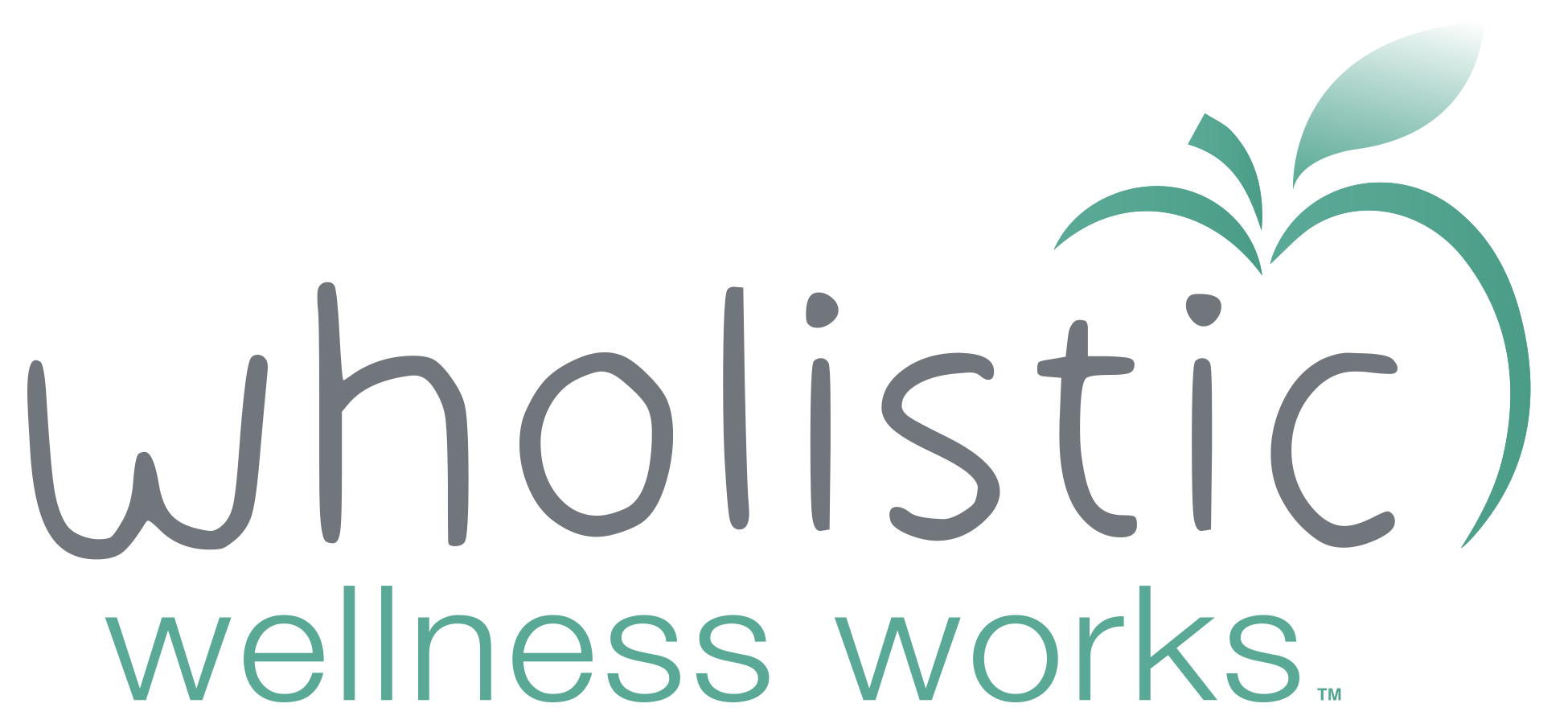Thrive with Adrenal and Whole Body Nourishment
Thrive with Adrenal and Whole Body Nourishment

The adrenal glands are located right on top of the kidneys1. They are involved in many bodily processes such as hormone and neurotransmitter production, organic acids, fatty acids, the eicosanoid pathway, body weight, bone health, kidney function, electrolyte and water balance, and much more1. The adrenal glands are responsible for releasing stress hormones such as the glucocorticoid- cortisol, and the catecholamines- epinephrine and norepinephrine1. Some conditions that can occur with the adrenal glands are hypercortisolism and hypocortisolism. Hypercortisolism can lead to functional hypothyroidism (cortisol inhibits release of TSH= less T4 and T3 production and promotes conversion of T4 to rT3 which puts the breaks on our metabolism), functional hypogonadism (cortisol inhibits FSH and LH and the hormones made from them- estrogen and testosterone), amenorrhea, insulin resistance (inhibits the effects of insulin), hypertension, neurotoxicity, insomnia, depression (morning melancholy), and immune suppression1. Hypocortisol can lead to depression (more fatigue in the afternoon and evening), PTSD, chronic fatigue syndrome, and hypotension1.
Hans Selye and the Stress Response
Hans Selye, an Austrian endocrinologist, is responsible for coining the word “stress”. He focused on the relationship between stress and the physiological response on the body. Below are the three stages of stress outlined from his work.

Alarm Stage: The Fight-or-Flight (stress) response is initiated. Cortisol and stress hormones increase, and immunity is lowered1. Anxiety is usually felt during this stage1.
Resistance Stage: The body tries to adapt to maintain homeostasis (balance of hormones and other functions of the body) by going into its energy reserves. DHEA decreases, cortisol is either increased or has started to decrease at this point1. The body can start to become resistant to cortisol1. There are also changes in mood, sleep and glucose levels1.
Exhaustion Stage: The body can no longer adapt to maintain homeostasis and reserves have been depleted. This is when increased pain, inflammation, chronic fatigue, and fibromyalgia can present1.
It is usually not until the exhaustion stage that someone may begin to seek help. However, just like with anxiety, stress may be overlooked if a physical ailment is present. It is important to note that the terms “Adrenal Fatigue” and “Burnout” have not been proven medical conditions as to date2. Instead of viewing the adrenals as “fatiguing” or “burning out”, it is better to understand how the body responds to stress and support the body nutritionally as a whole.
Nutrients that are important for “battling” the stress response are B vitamins and vitamins C1. Other nutrients such as calcium, magnesium and zinc, and the hormone DHEA can be depleted and may need to be replenished1. It is always important to check DHEA and testosterone levels before supplementing, because DHEA can increase testosterone1.
Whole Food, Nutrient Dense Diet
Eating nutritionally dense whole foods and supplementing with key nutrients when needed helps to both diminish the stress response and replenish the body. Also, avoiding any foods that are going to add more stress or inflammation is equally important, such as inflammatory foods, chemicals, toxins, and also avoiding foods that you may be allergic or intolerant to. Keeping the blood sugar balanced is also important, because a rise in cortisol can also increase glucose levels3.
You can keep both glucose and cortisol in check by eating at least 3 consistent low-glycemic meals a day with adequate complex carbohydrates, unsaturated fats, plant-based protein and veggies. Make sure you eat when relaxed and chew your food! Exercise and stress management are also crucial to keep blood sugar and cortisol in check. However, high intensity exercise for a long period of time can contribute to stress. If the body is already depleted of nutrients, fasting may also not be advised.
Some inflammatory foods to avoid: Foods you are allergic/intolerant to, gluten, sugar, white flour, high meat and dairy diet, pesticides and herbicides, chemicals in food, and carbonated drinks. You may also want to avoid foods that can cause a histamine response (processed and aged cheese, alcohol, fermented foods, pineapple, strawberries, citrus fruit, banana, tomatoes, and eggplant4). Caffeine can also contribute to stress in some people and further deplete minerals.
Focus on these foods:
Complex gluten-free carbohydrates: Brown rice, quinoa, buckwheat, non-GMO corn tortillas, millet and wild rice. You may be able to tolerate barely, rye and ancient grains such as spelt, kamut, farrow and einkorn; these all contain gluten, but may be more digestible than wheat. Avoid wheat all together.
Low glycemic fruit: Berries, cherries, apples, pairs, oranges
Nuts, seeds: Emphasize omega rich flaxseeds or chia seeds and magnesium rich pumpkin seeds
Legumes: Beans, lentils, tofu (Soak your beans overnight in water for better digestion. Instant Pot also helps to soften beans. If you still have a problem digesting beans, stick to smaller beans such as lentils, mung beans, tofu and tempe).
Vegetables: Eat lots of green leafy and cooked cruciferous veggies
Unsaturated fats: Olive oil, avocado, nuts and seeds
Salt: Sea salt and seaweed
Sweeteners: Monk fruit or green stevia. Coconut sugar and raw honey in moderation.
You want to include at least one serving of protein, healthy fat and veggies at each meal. Don’t eat more carbohydrates than protein in one sitting. Make sure not to skip meals or eat late at night. Try to get most of your calories before dinner, so that you are utilizing your nutrients throughout the day.
Fill half your plate with veggies, ¼ protein, ¼ complex carbohydrates, and 1 Tbsp unsaturated fat.
There was an article written about how to strengthen the immune system and reduce stress during the COVID-19 crises. Since stress also lowers the immune system, strengthening the immune system and managing stress do go hand in hand. The following recommendations were made from the article:
“Evidence indicates that a diet that positively impacts immune function contains adequate amounts of protein, particularly including glutamine, arginine and branched-chain amino acids (BCAAs); high omega-3 versus lower saturated, trans fat, and omega-6 fatty acids, low refined sugars, high fiber content such as whole grains, and micronutrients including vitamin A, vitamin D, vitamin C, vitamin E, B vitamins, zinc, selenium and iron, as well as phytochemicals 5.”

Two Beneficial Foods for Stress
Chickpeas:
“Vitamin B6 is arguably the most important B vitamin for mental and brain health because it is critical for making neurotransmitters and can help minimize the harmful effects of stress, including: Psychological effects of stress: B6 helps produce calming neurotransmitters, including serotonin and GABA6.”
1 cup of cooked chickpeas has 65% of the recommended daily value for vitamin B67.
Soaking chickpeas overnight and then cooking them in an instant pot can make them much softer and more digestible. You can make spiced roasted chickpeas to throw into a salad, wrap or Buddha bowl. Or you can blend them with tahini, garlic, lemon, cumin and sea salt and make a creamy hummus! It is also important to get other B vitamins such as folate and B12, since B6 deficiency can occur when other B vitamins are low8. This is also a great way to add more protein to your meals and branch-chained amino acids (which can be found in legumes).
Sautéed Spinach
Spinach is a good source of magnesium, as well as folate, vitamin C, potassium, phosphorus, calcium, and some iron9; all of which can help to replenish from the stress response. It was found that stress depletes magnesium, zinc, calcium and iron10. 1 cup (2 servings) of cooked spinach provides 40% of the daily value for magnesium11. Pair spinach with pumpkin seeds or almonds for even more magnesium.
One RTC study found that supplementing with B6 and Magnesium to alleviate stress was superior to just supplementing with magnesium on its own12. Although this study was done with supplements, it wouldn’t be a bad idea to combine sautéed spinach with chickpeas to combine magnesium and B6, along with the other beneficial nutrients they provide!
One obstacle when it comes to eating a low-glycemic, nutrient dense whole food diet to combat and replenish from stress, is that when we are stressed, we most often crave white flour, high sugar foods and/or high fatty foods. The last thing we want to eat is something “healthy”. In this case, it all comes down to planning. I like to have healthy sweets on hand, such as Lilly’s chocolate chips (sweetened with stevia), or cookies made from scratch with almond flour and coconut sugar as the sweetener. I also keep almond crackers in the house when craving something crunchy and salty. Apples with peanut butter can also satisfy that sweet and salty craving. Make sure you have snacks available in times when you feel stressed. Healthy fats can help you feel full and according to Ayurveda, the oil counteracts the dryness of Vata (anxiety). On the flip side, some people do not eat when they are stressed. In this case, make sure to eat at certain times each day, no matter what. This will help you keep your blood sugar regulated and give you the fuel to manage stress.
Medications:
Although “Adrenal Fatigue Syndrome” is not yet scientifically proven, those that are suspected of having it by presenting low cortisol levels in testing, are sometimes put on corticosteroids2. However, there are many side effects from corticosteroids, “such as psychiatric disorders, osteoporosis, myopathy, glaucoma, metabolic disorders, sleep disturbances and cardiovascular diseases2.” Hydrocortisone has major interactions with activated charcoal, grapefruit, lily-of-the-valley, and St. John’s Wort13. Hydrocortisone also has moderate depletions in calcium, chromium, magnesium, potassium and vitamin D and possibly even zinc and selenium13. Stress in general can deplete these nutrients, so it is better to get to the root cause of stress and fatigue, and rebuild energy reserves through diet, nutrition, and living a balanced lifestyle with adequate sleep and rest and restoration.
Supplements
Vibe: Whole Body Nutrition
Both Vitamin B and C are important nutrients for the adrenals 1.
Vitamin C: “The adrenals need more vitamin C than any other organ or tissue in the body, especially during times of stress 14.” It is not recommended to have more than 250 mg of vitamin C a day, because higher doses can cause diarrhea14.
B vitamins are protective for the adrenals and help to decrease the stress response14.
It is recommended to have a B complex vitamin daily14.
A multivitamin that includes both B vitamins and C may be beneficial for someone experiencing prolonged stress. This will ensure that many other nutrients get replenished that are affected by the stress response.
Vibe from Eniva is a liquid multivitamin and mineral supplement that is highly bioavailable. All the nutrients: Vitamin A, C, D, E and B vitamins are included. It also contains, iodine, magnesium, zinc, selenium, copper chromium, and a little bit of calcium. It also has CoQ10 and amino acids that are beneficial for the brain. Vibe does not contain iron, so you may want to supplement with iron separately if needed. I would also add an Algae DHA from Nordic Naturals for omegas. This will cover all the nutrient bases to help battle and replenish from stress and keep inflammation down.
Rhodiola
A study was done with 101 subjects with life-stress symptoms. Rhodiola rosea extract WS® 1375 was used in the study- 200 mg twice daily for 4 weeks. Improvements were seen after 3 days of treatment and continued to improve over the course of 4 weeks. It was found to be “effective in improving life-stress symptoms to a clinically relevant degree15”. Often times you can find a blend of other adaptogens in supplements with rhodiola to manage stress.
Referral:
Yoga not only gives you the health benefits of exercise, but also helps to reduce stress. Yoga helps to regulate the sympathetic nervous system and the HPA (hypothalamic-pituitary-adrenal) system16. Yoga includes deep breathing, which helps to turn off the stress response. The exercises are designed to open the meridians, which some pathways can get blocked during times of physical and mental stress. Yoga also helps to increase circulation, boost the immune system and bring oxygen to the brain.
“Forty two studies were included in the meta-analysis. Interventions that included yoga asanas were associated with reduced evening cortisol, waking cortisol, ambulatory systolic blood pressure, resting heart rate, high frequency heart rate variability, fasting blood glucose, cholesterol and low density lipoprotein, compared to active control16.”
Recap:
The adrenals sit right on top of the kidneys and have many functions- one being the release of stress hormones. The main stress hormones are cortisol and epinephrine and norepinephrine. Instead of focusing on the terms “Adrenal Fatigue” and “Burnout”, which have not yet been proven medical terms, one should focus on supporting the whole body with nutrients that help fight stress and replenish those nutrients that are depleted during stress. B vitamins and vitamin C are known to be essential for the adrenals and helping to build better resistance to stress. Calcium, magnesium, zinc, iron, and DHEA can be depleted during times of stress. There are three stages of the stress response- alarm, resistance, and exhaustion. When you reach the exhaustion stage, it is time to focus on replenishing the body with minerals, vitamin C and B vitamins, avoiding high intensity exercise, and focus on “yin” replenishing activities such as resting, taking a walk in nature, getting lots of sunlight, massage, acupuncture, etc. Toxins can also add to the burden of the body, especially when the body is already fatigued and depleted, so make sure to avoid toxins in food, water and body products as much as possible. Drinking clean, slightly alkaline water can help maintain the body’s pH. Avoiding over exposure to EMFs and having deep sleep are also important for managing stress. Stress can also cause dysbiosis in the gut, so a good probiotic may be beneficial. Lastly, yoga is a perfect form of exercise to help decrease the negative effects of stress. When it comes to managing stress, think of the saying, “less is always more”. When we do less, we actually give so much more back to our adrenals, body and mind!
References:
- Ross, K. Adrenal Glands. [Canvas]. Tempe, AZ: SCNM Masters in Clinical Nutrition Program; 2022.
- Cadegiani FA, Kater CE. Adrenal fatigue does not exist: a systematic review [published correction appears in BMC Endocr Disord. 2016 Nov 16;16(1):63]. BMC Endocr Disord. 2016;16(1):48. Published 2016 Aug 24. doi:10.1186/s12902-016-0128-4
- Vágási CI, Tóth Z, Pénzes J, Pap PL, Ouyang JQ, Lendvai ÁZ. The Relationship between Hormones, Glucose, and Oxidative Damage Is Condition and Stress Dependent in a Free-Living Passerine Bird. Physiol Biochem Zool. 2020;93(6):466-476. doi:10.1086/711957
- Comas-Basté O, Sánchez-Pérez S, Veciana-Nogués MT, Latorre-Moratalla M, Vidal-Carou MDC. Histamine Intolerance: The Current State of the Art. Biomolecules. 2020;10(8):1181. Published 2020 Aug 14. doi:10.3390/biom10081181
- Iddir M, Brito A, Dingeo G, et al. Strengthening the Immune System and Reducing Inflammation and Oxidative Stress through Diet and Nutrition: Considerations during the COVID-19 Crisis. Nutrients. 2020;12(6):1562. Published 2020 May 27. doi:10.3390/nu12061562
- Chandra S. Vitamin B6 Benefits: A Doctor’s Review. Suruchi Chandra M.D. Integrative Psychiatry and Medicine. Published September 30, 2021. Accessed March 6, 2022. https://www.chandramd.com/blog/vitamin-b6-benefits
- B6: Health Sheet for Professionals. NIH: National Institutes of Health. Updated March 26th, 2021. Accessed March 6, 2022. https://ods.od.nih.gov/factsheets/VitaminB6-HealthProfessional/
- The Nutrition Source: B6. Harvard T.H. Chan. Accessed March 6, 2022. https://www.hsph.harvard.edu/nutritionsource/vitamin-b6/
- https://fdc.nal.usda.gov/fdc-app.html#/food-details/168462/nutrients
- Lopresti AL. The Effects of Psychological and Environmental Stress on Micronutrient Concentrations in the Body: A Review of the Evidence. Adv Nutr. 2020;11(1):103-112. doi:10.1093/advances/nmz082
- Magnesium: Fact Sheet for Consumers. NIH: National Institutes of Health. Updated March 1st, 2022. Accessed March 6, 2022. https://ods.od.nih.gov/factsheets/Magnesium-healthProfessional/
- Pouteau E, Kabir-Ahmadi M, Noah L, et al. Superiority of magnesium and vitamin B6 over magnesium alone on severe stress in healthy adults with low magnesemia: A randomized, single-blind clinical trial. PLoS One. 2018;13(12):e0208454. Published 2018 Dec 18. doi:10.1371/journal.pone.0208454
- https://naturalmedicines-therapeuticresearch-com.scnmlib.idm.oclc.org/databases.aspx
- Rakel D. Integrative Medicine, fourth edition. Elsevier; 2018: 404-409.
- Edwards D, Heufelder A, Zimmermann A. Therapeutic effects and safety of Rhodiola rosea extract WS® 1375 in subjects with life-stress symptoms–results of an open-label study. Phytother Res. 2012;26(8):1220-1225. doi:10.1002/ptr.3712
- Pascoe MC, Thompson DR, Ski CF. Yoga, mindfulness-based stress reduction and stress-related physiological measures: A meta-analysis. Psychoneuroendocrinology. 2017;86:152-168. doi:10.1016/j.psyneuen.2017.08.008
